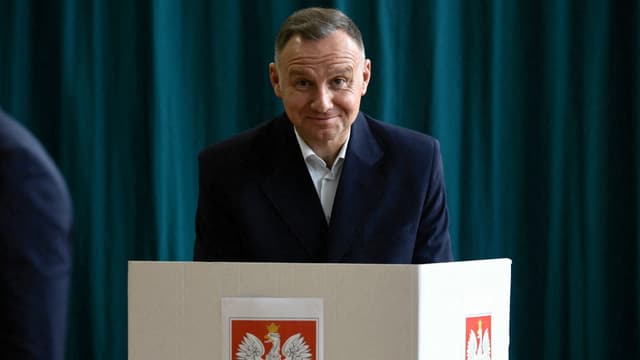Contents
The right-wing conservative PiS remains the largest party, but has to give up government power. She brakes wherever she can.
What is it about? Two weeks after the parliamentary elections in Poland, there is still no new government in sight. The opposition parties together have a majority in parliament and want to form the future government. But the previous governing party – which remains the largest party in the Polish parliament after the elections – the national-conservative PiS, is putting obstacles in the way of the formation of a new government wherever it can.
Why delay? The linchpin for a new government is President Andrzej Duda. He awards the contract to form a government. “Duda is still wavering as to whether he wants to give the task of forming a new government to the largest party, PiS, or to the opposition bloc,” says journalist Jan Opielka, who lives in Poland. The background: Duda himself also belongs to the PiS, which won the most seats in parliament in the elections. However, the PiS has no prospect of finding a coalition partner among the other parties for a governing majority. In this respect, a government mandate from Dudas to the PiS would amount to a mere delaying tactic.
The opposition wants to bring fallible PiS politicians to court for constitutional violations.
What is the president doing? If President Duda initially gave the government mandate to the PiS, even though it has no prospect of forming a government, he would be exposing himself to ridicule, Opielka states. The journalist assumes that on November 13th, at the first parliamentary session, a representative of the opposition will be elected speaker of the parliament. Opielka believes that Duda could then decide to entrust opposition leader and former Prime Minister Donald Tusk with forming a government.
What is the PiS doing? In the meantime, the incumbent PiS government is trying to sow discord among the three potential coalition partners for a new government, said Opielka. The opposition also accuses the PiS of abusing the delay to destroy compromising files: “The opposition has announced that it wants to bring fallible PiS politicians to court for breaches of the constitution,” said the journalist. By destroying files, the PiS would ensure that the legal areas of attack against its politicians would be as small as possible.
There are also differences between the three opposition blocs.
What is the opposition doing? The delay in forming a government has tangible consequences. This means that the potential new government of the current opposition can only start work later. One of her election promises was to ensure that previously blocked 50 billion euros in subsidies from Brussels were released as quickly as possible. That is now delayed. In addition, agreement among the opposition blocs on a common political course will also take time. Because: “There are also differences between the three blocs,” says journalist Opielka.

